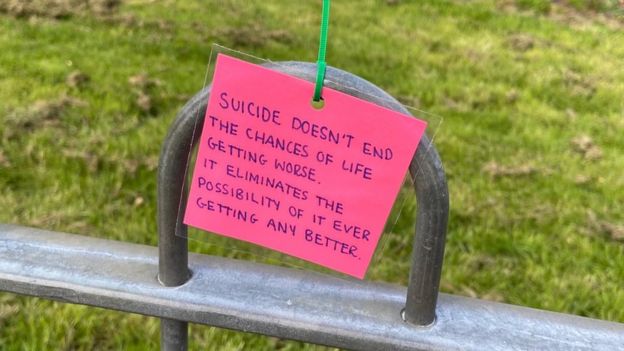
Photo by Anna Shvets on Pexels.com
Helping young people navigate #genderidentity and #sexualorientation
Writer: Juliann Garey
Clinical Experts: Emma C Woodward, PhD , Michael Enenbach, MD
What You'll Learn
- What does it mean for a child to be questioning?
- How can families support kids who are questioning their gender identity or sexual orientation?
- What mental health risks do questioning kids face?
- Quick Read
- Full Article
- What does it mean to be “questioning?”
- What helps kids when they are in a questioning mode?
- Emphasize acceptance
- Risk for mental health challenges
- Dealing with bullying
- How to handle your own challenging feelings
It’s common for kids to question their gender identity and sexual orientation, but the process can be confusing and scary. Young people who are dealing with these kinds of questions do best when their families support them.
If your child comes to you with questions or concerns about their gender identity or sexual orientation, the most important thing is to listen and let them know that you love them and support them no matter what. If you think that your child might be questioning, let them know that you’re always there if they want to talk. Then, let them take the lead, and don’t push them to talk before they’re ready.
It also helps to let your child know that your family accepts all gender identities and sexual orientations. Speak openly about non-straight people in your life and use people’s correct pronouns. And if your child wants to use a different name or pronouns, take them seriously and do as they ask.
Not all kids who are questioning are upset about it, but LGBTQ+ kids are at higher risk for challenges like depression and anxiety, especially if they feel rejected by family or friends. Keep an eye out for big changes in mood or #behavior. Kids who are very distressed about their gender identity may also be experiencing a mental health issue called gender dysphoria. Gender dysphoria comes with an increased risk of #suicidalthinking and #behavior, especially when kids don’t feel accepted, but treatment can help a lot.
It’s normal to experience #anxiety or sadness of your own if your child is questioning. Those feelings are valid, but it’s important to cope with them separately from your child and continue supporting them no matter how you feel. A therapist of your own or a support organization like PFLAG can help.
In recent years, the way kids and teens think about gender and sexuality has moved beyond the simple binaries of male/female and gay/straight. This gives them a lot more flexibility to understand and express their gender and sexual orientation in ways that feel right to them. But sorting out these feelings and thoughts can be confusing and sometimes scary — for kids and their families. And questioning kids do best when they have the support of their families.
What does it mean to be “questioning?”
It’s normal for very young children to experiment with gender identity, but “questioning” in this context refers to older kids and young adults who are in the process of exploring their gender identity and/or sexual orientation. For young people, questioning both who they’re attracted to (their sexual orientation) and what gender they identify with (#male, #female or another gender), has become more and more common. A recent poll shows that about 1 in 6 Americans aged 18–23 identify as something other than #heterosexual. Kids who are trying to figure out where they fit along these spectrums are often referred to as “questioning.”
For more on the terminology that young people often use to describe #sexualorientation and #gender identity, see the helpful glossary from the Human Rights Campaign.
What helps kids when they are in a questioning mode?
#Mentalhealthexperts stress the importance of giving kids who are questioning unconditional support at home. “We know that queer youth who have family support adjust to things a lot better,” says Michael Enenbach, MD, a child and #adolescent #psychiatrist and clinical director at the Child Mind Institute in the San Francisco Bay Area. “It’s really vital to have the support of the parents even if parents don’t agree with the child is saying or doing.” That means explicitly letting your child know that you love them, accept them, and stand by them — even if you’re confused or upset by the thoughts and feelings they’re having.
Most kids are probably not going to come right out and tell you that they’re having questions about who they’re attracted to or that they don’t feel right in the body they were born in. Being comfortable enough to reveal these feelings to their friends or parents or even themselves can be a long and difficult process. Dr. Enenbach says that even when parents pick up on signs from their kids — things they say, changes in the way they dress, things they post on #socialmedia, reports from other parents — you shouldn’t push your kids to talk about it. “It’s really important not to be too pointed and assertive,” he says.
So instead of saying something like, “Do you think you might be #gay?” or “I’ve noticed that you’ve been dressing differently,” it’s better to check in with open-ended questions and let them know that you’re there if they need you. You might say: “I hope you know that I’m here for you no matter what, and that you can talk to me about anything that’s going on.” You can also let kids know that if they’d rather talk to someone outside the family, you can arrange for them to meet with a therapist.
Dr. Enenbach also notes that it’s best to keep the conversation light and try not to hover. “Don’t ask every day, ‘How are you doing?’” he advises. Instead, check in once a month. “Ask your child, ‘How’s everything going? Anything you want to talk about? Anything you want to talk to someone else about?’ It’s really something that the teenager needs to figure out on their own, but know that they have the support of #adults.”
Emphasize acceptance
Even without discussing the issue with your child directly, you can take steps to make it clear to them that your family is accepting of all #genderidentities and #sexualorientations. This could include making a real effort to use other people’s correct pronouns, talking openly and without judgment about any non-straight or gender nonconforming people in your family’s life, and even talking about the media you watch together. You may see a character on TV coming out to their family and take the opportunity to say something like, “It’s so great they felt comfortable coming out to their dad. I hope you feel you could come to me if you had questions of your own or wanted to talk to me about your gender or sexuality.”
When a child does start to share ideas about their identity, it’s important for parents to respect those ideas and meet kids where they are. Start by being really open to what they have to say; just hear them out without passing judgment. It may be awkward at first, but that’s okay. The important part is to listen, let them know that you take their feelings seriously and follow their lead.
That includes using the pronouns or names that they ask you to use, even if they’re still figuring out what works for them. “Wherever I meet a family or child with these concerns we use the words that the #teens choose,” says Emma Woodward, PhD, a clinical #psychologist at the #ChildMindInstitute.
Risk for mental health challenges
Just because your child is having questioning thoughts doesn’t mean they’re upset about it. But these thoughts and feelings can cause mental health challenges like #depression and #anxiety, and LGBTQ+ kids are at higher risk for these disorders, especially if they feel rejected by family members or peers.
It’s important for parents to notice when a child seems constantly worried or withdrawn, doesn’t want to see friends, isn’t sleeping or eating well or has lost interest in activities they usually enjoy. These are signs of #mentalhealthchallenges that may or may not be related to gender or #sexualidentity. If these symptoms last more than a few weeks and especially if they seem to be getting worse, it may be time to get your child help from a therapist.
A child who seems to have a high level of distress around gender issues might be experiencing something called gender dysphoria. Kids with gender #dysphoria feel strongly that they are the wrong gender, and those feelings can cause an intense need to change genders.
It’s important to note that being #transgender is not a #mentalhealthdisorder. And not all transgender people experience #genderdysphoria. But kids who do have gender dysphoria are at an increased risk of suicidal thinking and #behavior, especially if family and friends do not accept them as the gender they identify with. Treatment can make a big difference for kids with gender #dysphoria, and #therapists can help families navigate options for kids who are considering transitioning to a different gender.
Dealing with bullying
Kids who are questioning may also be targets for #bullying. Whether or not your child is openly discussing their gender and #sexualidentity with you, it’s important to be ready to advocate for them. If you suspect bullying, start by talking with your child about what they’re experiencing and how they want to handle it. It’s best to get the child’s consent before talking to their teacher about bullying. At the same time, you can let them know that it’s important to stand up for themselves and that you’re ready to back them up: “We don’t have to do it right away, but we might need to talk to your teacher if this keeps happening.” Later, you might consider going to the principal if your concerns aren’t addressed after working with the #teacher.
Even if you don’t have specific concerns about #bullying, it may be helpful to bring up the subject at your next parent-#teacher conference. You might say, “Hey, I know that my child presents a little differently. Have you noticed any teasing or anything like that?” “It’s important to check in with teachers,” Dr. Enenbach says, “but I would only really push and go to the #school administration if you notice that your kid is really distressed and showing signs of #depression.”
#James Donaldson notes:Welcome to the “next chapter” of my life… being a voice and an advocate for #mentalhealthawarenessandsuicideprevention, especially pertaining to our younger generation of students and student-athletes.Getting men to speak up and reach out for help and assistance is one of my passions. Us men need to not suffer in silence or drown our sorrows in alcohol, hang out at bars and strip joints, or get involved with drug use.Having gone through a recent bout of #depression and #suicidalthoughts myself, I realize now, that I can make a huge difference in the lives of so many by sharing my story, and by sharing various resources I come across as I work in this space. #http://bit.ly/JamesMentalHealthArticleFind out more about the work I do on my 501c3 non-profit foundationwebsite www.yourgiftoflife.org Order your copy of James Donaldson's latest book,#CelebratingYourGiftofLife:From The Verge of Suicide to a Life of Purpose and Joy
www.celebratingyourgiftoflife.com
How to handle your own challenging feelings
It’s normal to experience upsetting feelings of your own if your child is questioning their gender or sexuality. You might feel anxious about the challenges your child could face, how to share news about their identity with extended family, or how to support a child whose identity is different from your own. In particular, parents of kids who are questioning their gender identity might feel a sense of mourning for the child they imagined they would have — the daughter who was going to walk down the aisle in a white dress, for example.
These feelings are all valid, says Dr. Enenbach, but parents should try to avoid letting them get in the way of supporting their child. “I’m not saying it’s easy for parents to be supportive,” Dr. Enenbach says. “But it’s really important to do your best and seek guidance on your own to help support the kid.” Learning more about LGBTQ+ identities and experiences can help, and so can joining a support group for parents for kids in similar situations. PFLAG, an organization for #LGBTQ+ people and their loved ones and allies, is a great place to start.
You might also consider working with a #therapist of your own to process your feelings separately from your child. “That kind of work especially is important for parents to do on their own, with their own provider,” Dr. Woodward says. Parents’ feelings “can cause a child to feel a lot of guilt and shame. Those are complicated feelings, but it’s not the kid’s responsibility to manage their parents’ emotional responses.”
Finally, it’s helpful to remember that questioning kids’ identities may evolve as they continue to explore their #gender and sexuality, so parents shouldn’t expect that the labels or pronouns kids choose for themselves will necessarily be fixed. The goal isn’t to get the #child to settle into an identity, but rather to support them through as much exploration as feels right to them. “It really is about following their lead with how they identify and what language they’re comfortable with,” says Dr. Woodward. All parents want their kids to feel safe, happy and loved. And being supportive, open and informed are the best ways for #parents to help questioning #kids have that experience.
Photo by Anna Shvets on Pexels.com
https://standingabovethecrowd.com/2023/06/jamesdonaldson-on-mentalhealth-how-to-support-kids-who-are-questioning-2/


 Mike and his daughter, Beth, as a #child
Mike and his daughter, Beth, as a #child Mike with Andy and Tim
Mike with Andy and Tim Mike’s daughter Beth
Mike’s daughter Beth Mike began walking with other grieving dads
Mike began walking with other grieving dads Nicy has gone on to work in #mentalhealth
Nicy has gone on to work in #mentalhealth







